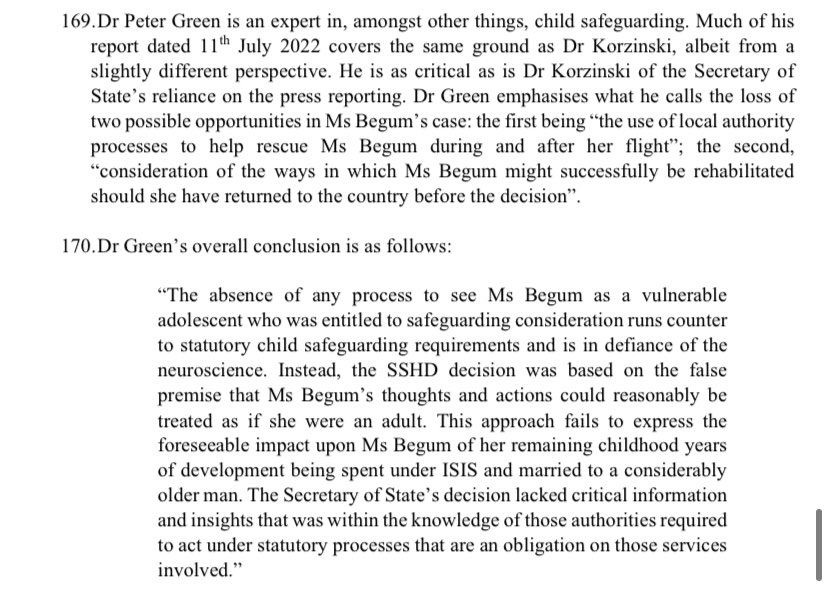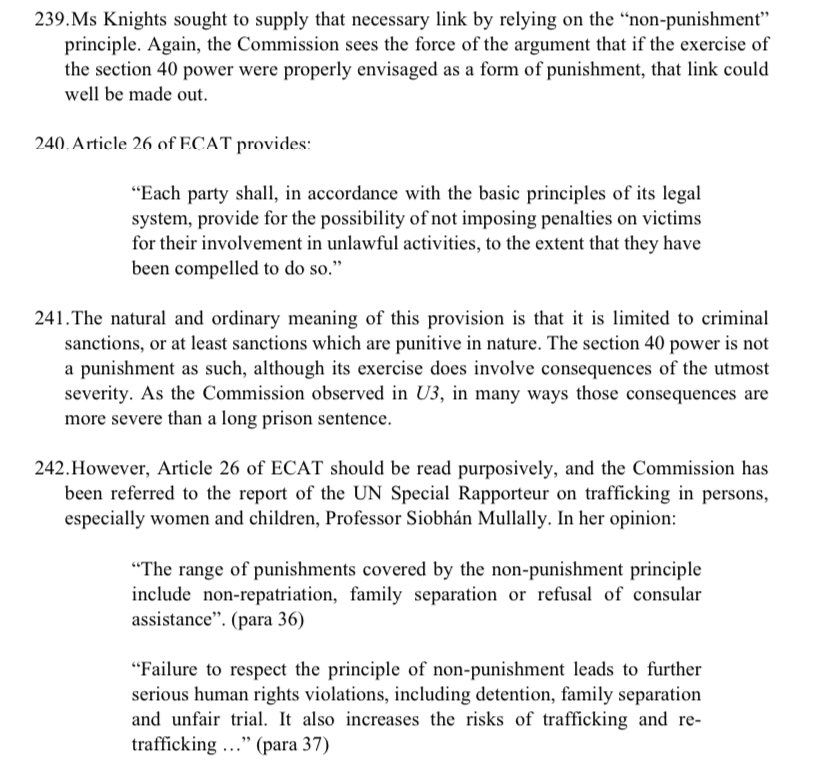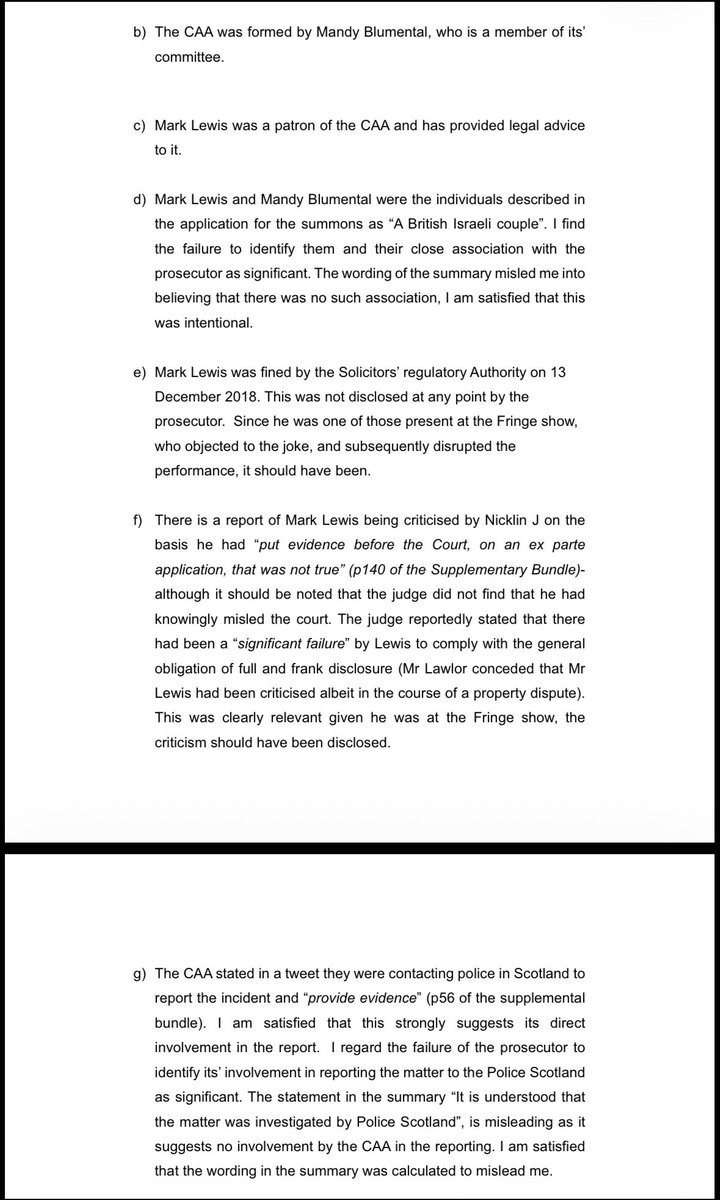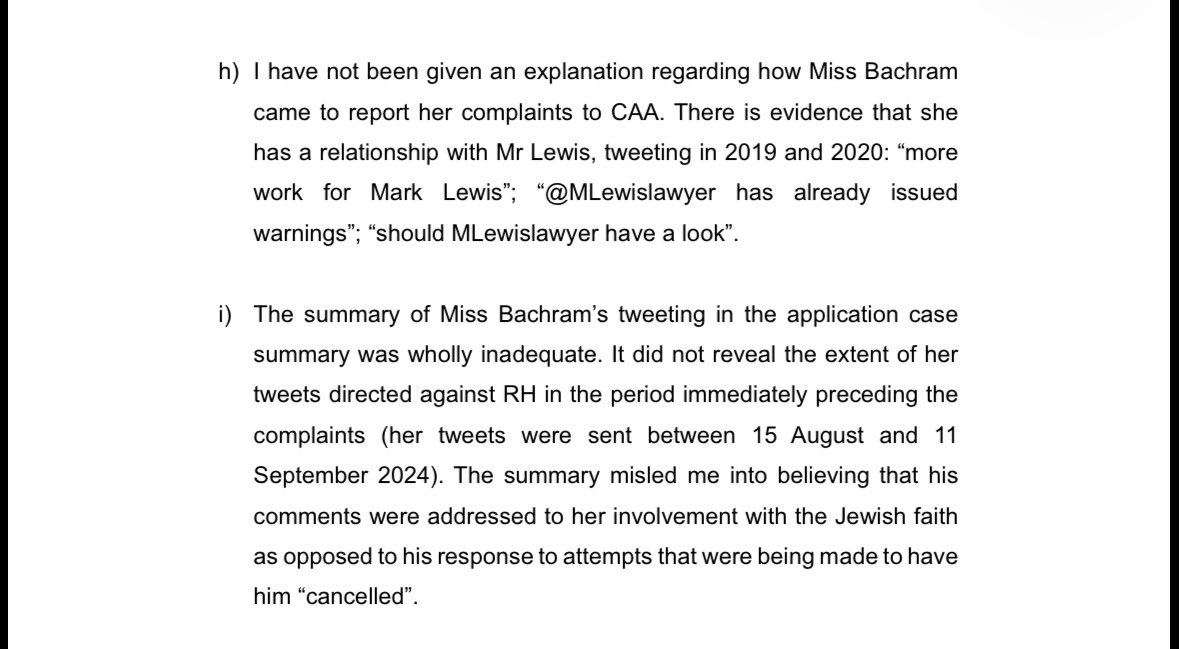I’ve just finished reading the #shamimabegum judgment and despite the many assertions to the contrary, it can be summed up as the Home Secretary’s assessment of national security is a trump card, regardless of all other considerations.
It’s important to understand the difference between ‘national security’ and the Home Secretary’s assessment of ‘national security’. They’re not the same. 

SIAC, the secret court that heard the appeal, repeatedly refers to its extremely limited role in assessing the national security threat posed by any individual. As the Supreme Court held 2 years ago, it needs to give due deference to the Home Secretary’s ‘inscrutable’ assessment 



So despite SIAC concluding that there is a credible suspicion that Begum was trafficked as a child for the purpose of sexual exploitation, it cannot make a decision as to whether or not she voluntarily travelled to Syria as it falls within the national security assessment. 



SIAC seemed at pains to spell out its discomfort with this position highlighting its concerns with the evidence of the government witnesses and how many right thinking people would strongly take issue with the assessment but conceded that its hands were tied. 



At the same time, SIAC concluded that the Home Sec did not even need to take into consideration the fact that there was credible evidence that Begum had been trafficked before he could deprive her of her citizenship. Otherwise, he wouldn’t be able to claim she acted voluntarily 

All of this despite the Home Office accepting that Begum was a victim of manipulation that resulted in her travelling to Syria albeit he would not go far as to say she was victim of trafficking. 

Numerous experts provided evidence in support of Begum including Richard Barrett, a former senior British intelligence officer as well as child safeguarding expert Dr Peter Green. 

Despite finding credible evidence Begum had been trafficked as a child and could not give valid consent , SIAC could not allow the appeal without further evidence of the UK breaching its protective, recovery, non-punishment and investigative duties towards her. 

With respect to the principle of non-punishment, SIAC claimed Begum was not punished by the deprivation as the principle was limited to criminal sanctions and did not fit squarely into the examples given by the UN Special Rapporteur. 

SIAC proceeded to spell out the consequences of such a finding: the SSHD would never be able to deprive a victim of trafficking of their citizenship and dismissed the ground of appeal on the basis that it was new ground that it could not be confident the ECtHR would agree with. 

SIAC did conclude that had it found in favour of Begum on this ground, it would have allowed the appeal and seems to have left the door wide open for an appeal on this point ultimately to Strasbourg 

Begum raised an interesting point about the haste with which @sajidjavid made the deprivation order at 7am on 19 Feb after receiving the assessment just 14 hrs earlier. Did he even consider it properly? Or had he already made up his mind as his public comments seemed to suggest? 

SIAC described the comments as “bullish soundbites”. Perhaps SIAC is being naive. Let’s recall Javid had expressed his interest in a likely Tory leadership election just 2 months earlier. Being tough on Begum wasn’t going to harm his chances by any means. 

In fact SIAC elsewhere recognised the political nature of the decision, at least the speed with which it was taken, not least because of the Home Office witness’ unsatisfactory evidence in this regard. 



Ultimately it remains unclear why, if Begum was considered to pose the threat they say she does, she was not deprived in 2017 when 104 other Brits were stripped of their citizenship at the peak of ISIS, in line with policy. Yet, we are supposed to believe she now poses a threat? 



Begum also challenged the decision as breaching the Public Sector Equality Duty imposed by the Equality Act. SIAC found that there was an exemption to not act in a discriminatory way if it were for the purpose of safeguarding national security.
It proceeded to consider the principles if the exemption did not apply finding that the impact of deprivation was felt in Muslim communities in the UK and therefore the effect was not just felt abroad. 

SIAC also expressed concern that there was nothing in OPEN indicating that the SSHD had considered that many people felt that Muslim communities were being treated as 2nd class citizens, albeit it seemed satisfied this was addressed in CLOSED. 

Considering how much public interest there is in this issue of Muslims being treated as 2nd class citizens, as evidence by the future over Clause 9 of the Nationality and Borders Bill, it is of great concern why this evidence needed to be heard in secret. What are they hiding?
Disappointingly, SIAC appeared to justify the almost exclusive use of deprivation against Muslims. The finding that it could rarely be used against extreme right wing terrorism because they are not dual nationals betrays naivety on the part of SIAC. 

This is yet another travesty of justice in siac for a victim of trafficking and abuse. U3 who is referenced several times in the decision also had her appeal dismissed despite all the positive findings in her favour freemovement.org.uk/victim-of-brut…
Appeals to SIAC are virtually meaningless and appellants who are punished in the most draconian manner really have minimal prospects of success in the secret court when national security is used as a trump card.
For the judiciary to blindly follow the assessment of the executive, particularly with governments as corrupt as the ones we have seen in recent years, undermines the doctrine of separation of powers.
As @ColinYeo1 incisively details, the history of the deprivation power confirms the underhanded and bad faith manner in which it was amended by both the Labour and Tory governments in order to target specific individuals, but affects all of us today freemovement.org.uk/bad-cases-make…
I wrote extensively on the background to the power last year for @UK_CAGE, one of the foremost opponents of the policy who have been warning of the rise of the security state for 20 years. As with Guantanamo, Prevent, Schedule 7, etc they have sadly been proven correct again.
https://twitter.com/fahadansari/status/1473661888105963524
Begum’s incredible solicitors are not the type to issue press statements in relation to their cases but even they have felt forced to do so today to express their concerns at how hamstrung SIAC has now become as a result of the Supreme Court’s decision. Very powerful words.
https://twitter.com/BPCivLibs/status/1628386262154452996
• • •
Missing some Tweet in this thread? You can try to
force a refresh

















